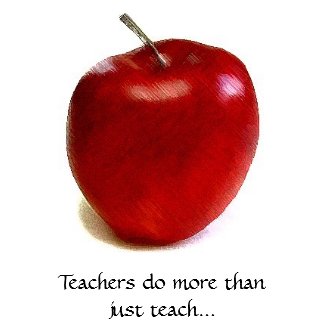
Education is a hot topic these days. From funding cuts to teachers’ unions to inner city public schools to how the U.S. ranks in other countries, everybody’s got an opinion.
I do believe that the way we teach our children today is often outdated and stifles critical thinking and creativity (See Ken Robinson’s entertaining TED video on this subject).
Parker Palmer, who wrote The Courage to Teach (paid link), among many other books, quotes one of my heroes, Thomas Merton,
“The purpose of education is to show a person how to define himself authentically and spontaneously in relation to his world—not to impose a prefabricated definition of the world, still less an arbitrary definition of the individual himself.”
In this sense, a teacher is not imparting knowledge as such, but enabling the student to connect with the knowledge in his or her own unique way. The student is free to question and work with the knowledge in such a way that he or she may bring something completely new to it. Our knowledge is always limited, never complete, which makes life so exciting.
That being said, I have the utmost respect for teachers. Many teach in this manner and are unsung and underpaid. They deserve a medal because next to parenting, it is one of the most important jobs in the world. If you ask a person who is successfully living and doing what they are passionate about, they will often point to a certain teacher who lit the spark in them.
Models for new ways of educating are out there and are inspiring hope. Some may work and some may not, but at least people are trying new things.
One of these new models is Geoffery Canada’s Harlem Childrens Zone, which was highlighted in the documentary, Waiting for “Superman”. Through the collaborative efforts of dedicated teachers and parents, they address the entire Harlem community with their methods and help children “beat the odds.”
Just yesterday, I watched an exciting TED video by Salman Khan on using video to reinvent education. Khan was working for a hedge fund when he started making videos to help his cousins with math. The videos started attracting attention and parents were reporting that their children were finally understanding concepts they had struggled with in school.
Khan left his job and now runs the non-profit Khan Academy. He and his team not only have more than 2,000 videos ready for use, but they have developed a system to track student’s progress. It is being used in two grades at a California elementary school, but Khan says it is ready to go national. Amazing!
We’re all learning (hopefully) every single day. Pay attention to what you learn today and why or how it stuck with you.
Image Credit: Teachers do more than just teach… by juleemay25
When I look back at my education as a kid I see so much wasted time, missed opportunities and generic education that did not work for my style of learning. I do think that the current education system (in Australia) does not meet the needs of the individual.
I also think that many parents shunt the full responsibility of education onto over worked teachers.
For my children I hope to use school as a beginning of education and expand the curriculum at home. My eldest daughter, at least, is showing signs of being the type of student I was, and the system does not cater for quick and erratic learners. I loved school, but there was so much boredom and repetition that wasn’t really needed for me to learn something.
I once read an article that claimed that our schools were designed for the industrial revolution and a time gone past, and I tend to agree.
Having said all that, I came from a not so great home life, and some of my teachers had the greatest of impacts on my life. If it wasn’t for my teachers, I wouldn’t be where I am today.
Thanks for the interesting article 😀
Nutty
(barely coherent at 2.50am)
Thanks, Nutty. It really is a complex issue. I would bet all of us could come up with at least one teacher who really made a difference in our lives. You make a good point about the style of teaching being geared more towards the industrial revolution. I do believe that we need to encourage the creativity of our children.